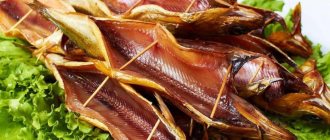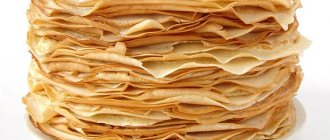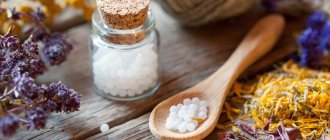After childbirth, every woman needs a complete, balanced diet to restore strength and provide the baby with everything necessary for growth and development. Since foods need to be introduced into the diet gradually, you should know exactly which fruits a nursing mother can eat from the first days, and which ones are best avoided so as not to harm the baby.
Is it possible to eat vegetables and fruits?
Young mothers are constantly worried about the quality of their milk and often consult with experienced pediatricians and friends: will vegetables, berries and fruits be harmful when breastfeeding?
Some mothers completely exclude them from the diet, fearing an allergic reaction in the newborn or gastrointestinal disorders. But without fruits and vegetables, a woman’s milk does not get all the necessary microelements that her baby needs.
Important!
For the growth and development of the child, a nursing mother needs to eat about 500 g of vegetables and fruits per day, gradually accustoming the baby to them.
In addition, the lack of vegetable dishes can cause constipation in the mother and negatively affect her health.
Fresh berries, vegetables, and fruits are the main source of vitamins necessary for good lactation, so you must eat them, following simple rules.
How to choose correctly
In order not to expose herself and her child to the risk of poisoning, it is advisable for a nursing woman to choose seasonal fruits that grow close to the region where they live and that have not been subjected to long-term storage and long transportation.
To summarize the above, we can determine which fruits are safe to eat in the first month of breastfeeding:
- Hypoallergenic - non-brightly colored, white and green fruits.
- Typical for the region of residence.
- Seasonal - those that have time to ripen in the region of residence by the time of sale.
Safe fruits include:
- Apples. They can be eaten in limited quantities, since due to their high iron content, apples can cause constipation in the mother or child.
- Pears. They are also not recommended to be abused, since in large quantities they can cause intestinal colic.
- Plums. Despite their intense coloring, they are hypoallergenic, but have a pronounced laxative effect. It is better to prefer dried fruit compote to fresh plums.
- Peaches and apricots are not highly allergenic. They can be eaten in limited quantities during the first month of feeding.
- Banana. Despite the fact that it is not a typical product for Russian regions, banana is low allergenic. When feeding, you can eat it without fear for the baby’s health.
To reduce the negative impact of fruits on digestion, it is advisable to eat most of them after peeling them.
How to introduce vegetables and fruits into your diet?
The greatest benefit will come from fruits and vegetables that grow in the region where the woman lives. The body at the genetic level is better suited to assimilate these fruits. It is advisable to introduce them into the diet during the ripening season.
Advice
Fresh vegetables are useful in summer and autumn; for the winter, a nursing mother needs to freeze them. This rule also applies to berries and fruits. Grown in greenhouses in winter, they are loaded with preservatives and can harm mother and baby.
When choosing fruits at the market, you need to carefully examine them and buy the freshest ones, preferably from farmers - from their gardens. Vegetables brought from afar are often treated with chemicals and contain nitrates, which in no case should enter the body during breastfeeding.
Most preferred fruits
Many fruits are quite allergenic, so it is difficult to find a variety of these products in the diet of nursing mothers. Give preference to green apples and pears. They are rich in vitamins and microelements, such as nickel, succinic acid, fluorine, molybdenum, copper. Apricots are unique in their composition due to the presence of vitamin PP, large amounts of potassium and carotene. Pay attention to the cherries too. These berries contain magnesium and phosphorus, as well as vitamins C and B.
Prepare fruit salads, make freshly squeezed juices diluted with water in a 1:2 ratio, cook compotes and jelly, and also eat dried fruits to diversify and enrich your daily diet.
How to protect your baby from allergies and colic?
Until the newborn is one month old, you need to be careful with fruits and choose them by elimination. You should avoid red and other brightly colored fruits. The coloring pigment in them is the main cause of allergic reactions, which cause the baby to develop red spots and rashes on the skin. If you really want to eat a red apple while breastfeeding, cut off the peel, or better yet, bake it in the oven.
- In the first month of a baby’s life, you need to completely exclude citrus fruits, as they are powerful allergens. Therefore, introduce them into the diet gradually when the baby is more than 3 months old.
- After eating a slice of orange, observe the child's condition, and if he cries a lot or is covered in a rash, postpone eating citrus fruits indefinitely.
- The first month of a baby's life is often accompanied by bloating and colic. Fruits such as grapes, pears and plums can cause them, so avoid them for a few months after giving birth.
Fragrant fruits from exotic countries have a negative effect on a newborn. They are foreign to our region, and during transportation they are treated with chemicals that increase their shelf life. If a mother wants to eat pineapple or papaya, she must wait until the baby is 3-4 months old, thoroughly wash the fruit in a baking soda solution and eat a small piece for the first time. The exception is bananas, which you can try a couple of weeks after giving birth.
When can you introduce berries into your diet?
To prevent them from harming the baby, they should be eaten seasonally and in small quantities. At first, light berries, such as white currants, are suitable. Wash 3-4 berries thoroughly with hot water and after eating, monitor your baby’s reaction to them. If everything is fine, gradually increase the amount of fruit to 1 tbsp. spoons.
Berries such as raspberries, blueberries, strawberries, black currants during breastfeeding should be included in the diet for 3-4 months after birth. They are useful, but can cause allergies. Start eating 1-2 strawberries and raspberries and, if the baby does not react negatively, increase their number every day until you reach 15 berries. There is no need to eat more, because the juicy fruits have a laxative effect.
Advice
Be careful when adding a new product to your food. Do this gradually and never introduce different berries at the same time. This will have a bad effect on the baby’s well-being and will put too much strain on his fragile stomach. Many different fruits can easily cause bloating, colic and allergies.
In order for mother and baby to feel good while breastfeeding, you should follow moderation and not eat berries in large quantities, even if you really want to. The optimal dose per day is half a glass, taking into account that the child reacts positively to the fruit.
What vegetables can you eat during lactation?
It is necessary to diversify your diet with vegetables. If you don’t eat them, you can easily gain excess weight, since you will have to eat more high-calorie foods. Start introducing them into the menu gradually, one type every few days in small portions. Adhering to this recommendation, in a couple of months the mother will be able to enrich her diet with almost all the vegetables she has become accustomed to since childhood. If you have a negative reaction to some fresh fruit, do not panic. Try baking these vegetables in the oven or stewing them.
In the first month, you can introduce the following vegetables into your diet:
- carrots – improves the vision of a nursing mother and enriches the child’s body with carotene and vitamins;
- potatoes are a source of thiamine, which is necessary for the baby;
- green, yellow bell peppers and zucchini contain many useful microelements and strengthen capillaries;
- celery relieves the condition of a baby's bloated tummy;
- eggplants supply the body of a nursing mother and baby with essential substances;
- cauliflower - folic acid in its composition has a beneficial effect on the mental development of the newborn, and other trace elements stabilize the intestinal microflora.
Important!
Some mothers are afraid to eat tomatoes, pumpkin and beets while breastfeeding. If a woman did not have an allergic reaction to them before giving birth, these fruits can and should be eaten, gradually introducing them into the diet.
What should a nursing mother avoid?
There are vegetables that cause a negative reaction in almost all infants. They are excluded from the diet for the following reasons:
- Red cabbage, kohlrabi, pickled or raw white cabbage cause bloating, colic, and fermentation in the intestines. After 4 months, stewed cabbage or as part of first courses is allowed
- Onions, garlic, wild garlic - have a strong taste and impart an untidy smell to breast milk, which causes the baby to refuse the breast, and irritate the mucous membrane of the stomach and intestines. You need to avoid them completely or use minimal quantities.
- Lentils, peas, beans, chickpeas, mung beans, beans - are difficult to digest and can cause stomach pain
- Radish, daikon, radish are contraindicated for any digestive disorders in mother and child, as they contain a lot of hot essential oils.
- All pickles, marinades and canned vegetables contain a lot of salt and vinegar, which are harmful to both mother and baby. They increase the acidity of gastric juice, retain fluid in the body, increase blood pressure and worsen kidney function.
Onions and garlic give breast milk an unpleasant taste.
What fruits should be included in the diet with caution?
It is advisable for mothers to give up cucumbers in the 1st month of the baby’s life. They often cause increased gas formation. The same applies to white cabbage. To be safe, eat it boiled or stewed in small portions.
- In the first month after childbirth, it is recommended to exclude garlic and onions. Their persistent aroma and bitter taste can discourage a newborn from drinking breast milk.
- When breastfeeding, you should start eating peas and beans gradually, at 3–4 months after the baby is born. Their early inclusion in the diet often leads to colic and gas formation in the child.
- You need to wait until the baby’s stomach is fully formed, and then little by little boil, stew the vegetables and taste them.
Vegetables that do not grow in our region, such as avocados, should be eaten with caution and started as late as possible. They can cause indigestion and serious allergies in infants.











